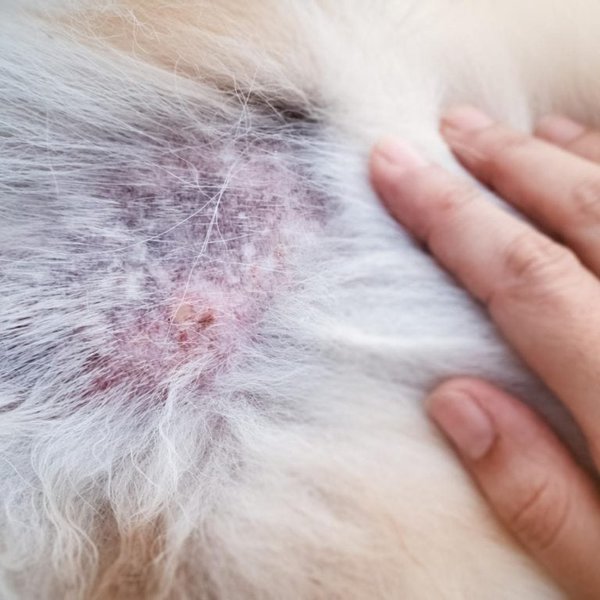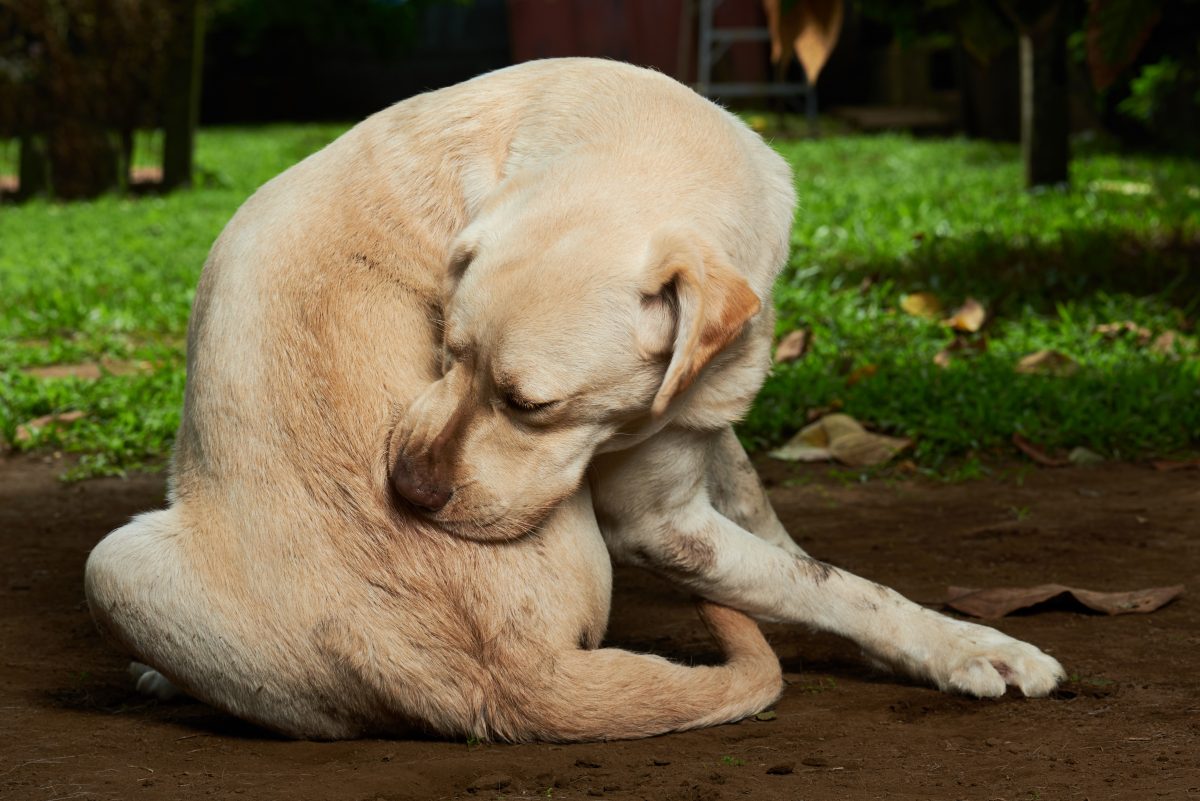Dog Itching and What Could Be Causing It American Kennel Club
Table Of Content

If your dog’s skin needs soothing, buy some pet-safe Aloe gel or spray. This decreases the risk of irritation and other unpleasant reactions. Pup parents who deal with allergies and skin diseases often will know when it’s harmless to care for their pet without checking with a vet. Dogs can be affected by shampoo, dog food, flea bites, mites or dust mites. While flea bites cause a transient annoyance to both pets and people, dogs with a true flea allergy are oversensitive.
Apple Cider Vinegar50% mix in the water
Ringworm is a fungal infection that lives and grows in infected dogs' skin and hair follicles, occasionally infecting the nails. The vet will recommend long-term medications to control the condition whenever it reaches a severe stage, often generalized and not sporadic. For the most part, dog hair loss will be very noticeable to owners, showing up in different patterns and shapes. Should you notice your dog licking a certain area of their body incessantly, thoroughly examine the area for any lesions or irritation.
Causes of Itching and other Skin Problems

These blood-dependent pests use dogs as hosts all the time and can latch on anywhere. Ticks can go unnoticed for some time until they become fully engorged and large enough for you to spot and remove. If you find a tick on your canine and need help removing it contact your veterinarian.
Is Coconut Oil Good for Dog's Hair Loss?
Environmental irritants can further aggravate the situation, emphasizing the need for a clean and safe living environment for pets. Additionally, stress can impact skin health, highlighting the significance of a calm and nurturing atmosphere for your dog. By exploring these factors and addressing them appropriately, it is possible to alleviate and prevent itchiness and hair loss in dogs.
10 Best Shampoos for Dogs with Itchy Skin - Architectural Digest
10 Best Shampoos for Dogs with Itchy Skin.
Posted: Tue, 07 Feb 2023 08:00:00 GMT [source]
Allergy symptoms often manifest on the skin with itching, redness, and even hair loss if the itching and scratching are severe enough. One possibility is your dog might be suffering from mange, a skin disease caused by tiny parasites. The symptoms of mange in dogs often consist of itching, hair loss, and the development of scabs and sores. Your veterinarian will perform diagnostic testing to determine the ingredient that is causing the allergic reaction. Once your dog’s food has been changed and the problematic ingredient removed, the symptoms should resolve. Treatment for your dog’s itching and hair loss will strongly depend on what is causing the itching and hair loss.
How Can I Treat My Dog's Hair Loss?
As the number of mites living in the hair follicles and skin of the dog increases, it can lead to lesions, infections, and dog hair loss. Occasionally, a localized area of alopecia may be seen after applying a topical medication like a flea treatment, or after a vaccine or other injection. If you notice this, you should report it to your vet; they can discuss the specific medication used and whether it’s worth changing it in future. This relatively common inherited condition primarily affects the neck, chest and belly of short-haired breeds like smooth-coated Dachshunds.
What Is Alopecia in Dogs?
Before giving your dog an oral antihistamine, consult a veterinarian to confirm the correct dosage. Veterinary professionals will also likely ask you about changes in your dog's behavior, such as excessive scratching. You resolve the issue by identifying and avoiding food allergies or putting your pup on medication in many cases. You also want to consult the vet if any other people or pets in the house have skin lesions.
There are many things that can cause a dog to lose hair, but it's likely that your pooch is going bald for one of five common reasons. General treatments for an itch include moisturizer, corticosteroid creams, ice packs, and allergy medications. Diagnostic methods also vary depending on what other symptoms you have. See your healthcare provider if your itch is accompanied by symptoms that suggest an underlying disease or if it’s severe enough to disrupt your life. Baths are an importance consideration when dealing with an itchy dog.
Itchy skin without a rash can be an annoying problem, especially if it’s long-lasting and you can’t find relief. Persistent itching could be due to various causes, from simple dry skin to systemic disease. An itch can sometimes be an early warning sign of serious illness. Mange is a skin condition caused by mites that can’t be seen with a naked eye. These nasties burrow deep into a dog’s skin, creating inflammation and open wounds that can become infected. Dogs who suffer from boredom or anxiety may compulsively scratch themselves as a way of soothing their nervousness.
Sign up for weekly pet health tips and insights from our veterinarians. She has been working with dogs and their owners both in person and through her online content for over six years. If your dog's skin condition is due to vitamin deficiencies, the good news is that this is easy to fix. That being said, a dog losing more of its hair coat than from shedding is not too abnormal. Some shedding is completely normal but losing more hair than this can be concerning. There is a difference in the amount of hair loss between normal shedding and hair loss.
Do not let your dog lick the cream after application and if you are reaching for a steroid cream, consult a veterinarian to ensure its safety. Diagnosis may be as simple as scheduling a wellness exam, but sometimes, your dog may require additional testing, including skin scrapings or allergy testing. No matter the cause, we will thoroughly evaluate your pet to determine what is causing their itchiness and develop a plan to resolve their discomfort. You might find your dog scratching more often with warmer weather creeping in.

Your primary healthcare provider may do some testing themselves or refer you to a dermatologist. Itching is caused by nerves, so many neurological (nerve) disorders include itchiness as a symptom. As with systemic diseases, you must get a proper diagnosis and treatment if your itch is caused by a neurological disease. A persistent itch may be a symptom of a systemic disorder, which is a condition that affects your internal organs. You should see a healthcare provider if you have an itch without a known cause and other symptoms.
Allergic rashes and hives require further treatment than simply removal of the allergens. This is often a reaction requiring immediate treatment from the vet to prevent a more substantial, full-body condition. Hair loss in dogs may be caused by many reasons, including allergies, infections, and parasites.
When booking a video call with a vet, you'll be asked a few questions about your pet’s health issue. If your dog is itching but doesn’t have fleas, it’s a good idea to visit your vet. The problem can be due to an allergy, an infection, or another cause.
If the itching and scratching occur in the shedding period, there’s likely nothing wrong. (Sarcoptic mites are discussed further in the “Mange” section of this article). Anotheradvantage of olive oil is that it will smother mites if those bedbugs are thecause of a dog’s hair loss.
Comments
Post a Comment